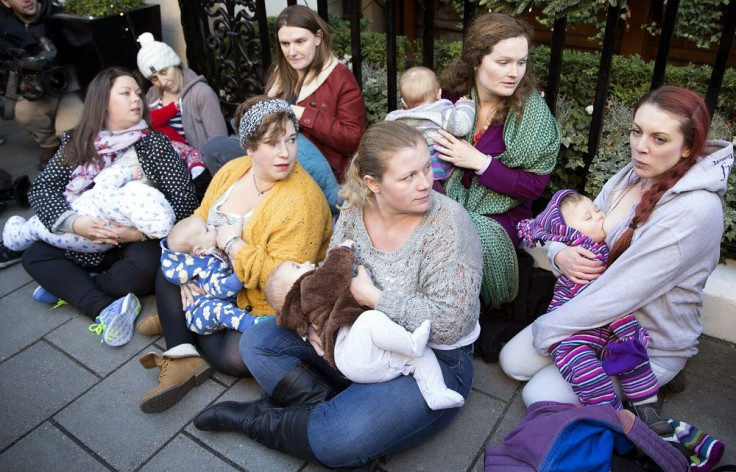Breast cancer news and treatment: Deadly disease affecting new UK mums; New drug combination effective

The number of women in the UK, aged 45 years and under, and diagnosed with breast cancer is on the rise. Moreover, one in 10 younger women who get breast cancer first spot it when they are either pregnant or breastfeeding. Every year, there are 5,600 new cases in this age group.
Health experts have revealed that the longer women delay motherhood, the higher are the chances of developing breast cancer in their lifetime. A new study of 496 women, aged 45 years and below, has found out that one in 10 women first spotted signs while breastfeeding or when pregnant.
In 2014, the average age of mothers increased to 30, which is about four years higher than in the 1970s. The research, conducted by Breast Cancer Care also suggest that more than third of the 496 women (39 percent) received treatment when their youngest child was five or under.
Female breast cancer is strongly related to age, reports AAP. Almost half of all cases are 65 and over.
“A breast cancer diagnosis during pregnancy or soon after giving birth can mean some women find it difficult to bond with their baby. The feelings of guilt can be huge and they may feel they have nowhere to turn. So access to support is vital,” said Samia al Qadhi, chief executive of Breast Cancer Care.
However, an international study, published in the Lancet Oncology medical journal, has revealed that a new combination of drugs may delay the need for chemotherapy. When new treatment palbociclib was combined with established hormone drug called fulvestrant, scientists found that they were able to halt tumour growth for up to nine months in women with the most common type of breast cancer.
The combination even slowed down cancer growth in about two thirds of women with advanced forms of breast cancer. The breast cancer drug combination slowed down tumour growth by an average of 9.5 months.
“We hope our results lead to the adoption of this drug combination in breast cancer, where it delays the need to start chemotherapy by an average of nine months,” lead researcher Dr. Nicholas Turner from Institute of Cancer Research was quoted by 9News as saying.





















